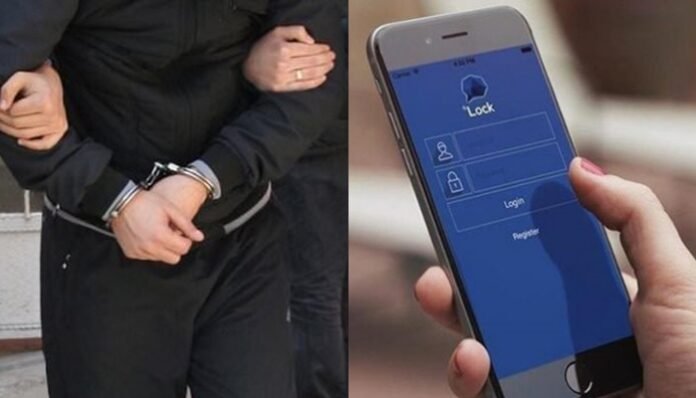A Turkish-American man believed to be behind encrypted messaging app ByLock, which Turkish authorities consider to be evidence of terrorist organization membership, arrived in İstanbul last month where he turned himself in to police, The Associated Press reported on Wednesday, citing the state-run Anadolu news agency.
Anadolu said David Keynes (Alpaslan Demir), the alleged license holder for the ByLock messaging app who was wanted in Turkey, was taken into police custody at İstanbul’s main airport on June 9. It was not clear why state media reported Keynes’s arrest more than a month after his arrival in Turkey.
Keynes’ surrender came months after he declared through his lawyers that he wanted to cooperate with Turkish authorities under a “repentance law” that grants offenders more lenient punishment, Anadolu reported.
Turkish authorities claim that ByLock, an app that was once available on Apple’s App Store and Google Play, is a communication tool exclusively used by members of the Gülen movement to ensure the privacy of their conversations. The app was permanently shut down in March 2016, before the movement was declared a terrorist organization by the Turkish government.
Turkish President Recep Tayyip Erdoğan has been targeting followers of the Gülen movement, a faith-based group inspired by Turkish cleric Fethullah Gülen, since the corruption investigations of December 17-25, 2013, which implicated then-Prime Minister Erdoğan, his family members and his inner circle.
Dismissing the investigations as a Gülenist coup and conspiracy against his government, Erdoğan designated the movement as a terrorist organization and began to target its members. He intensified the crackdown on the movement following a coup attempt on July 15, 2016 that he accused Gülen of masterminding. Gülen and the movement strongly deny involvement in the abortive putsch or any terrorist activity.
Anadolu said Keynes has since been charged with membership in a terrorist organization and faces a maximum 15-year sentence. No trial date has been set.
The news comes a week after the European Court of Human Rights (ECtHR) faulted Turkey over the pre-trial detention of a former police officer due to his alleged use of ByLock.
The court’s ruling said the use of the ByLock application is not an offense in itself and does not constitute sufficient evidence for arrest. The Strasbourg court’s decision has come as a source of hope for thousands of people who were arrested or sentenced on terrorism charges based mainly on a National Intelligence Organization (MİT) report that detailed alleged users of ByLock.
“In the absence of other evidence or information, the document in question, stating merely that the applicant was a user of ByLock, could not, in itself, indicate that there were reasonable suspicions that could satisfy an objective observer that he indeed used ByLock in a manner that could amount to the alleged offences,” said the court.
Following the abortive putsch, the Turkish government declared a state of emergency and carried out a massive purge of state institutions under the pretext of an anti-coup fight. More than 130,000 public servants, including 4,156 judges and prosecutors, as well as 29,444 members of the armed forces, were summarily removed from their jobs for alleged membership in or relationships with “terrorist organizations” by emergency decree-laws subject to neither judicial nor parliamentary scrutiny.















